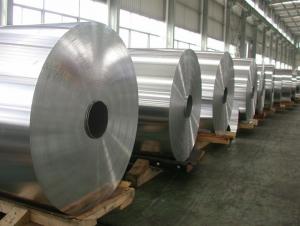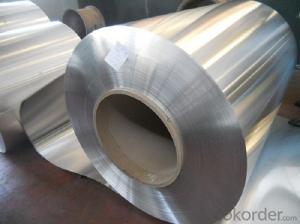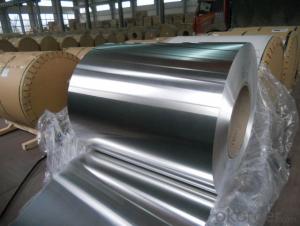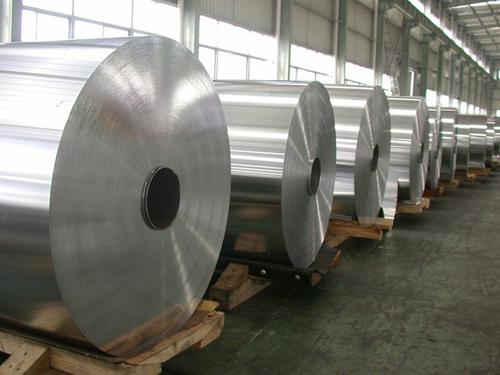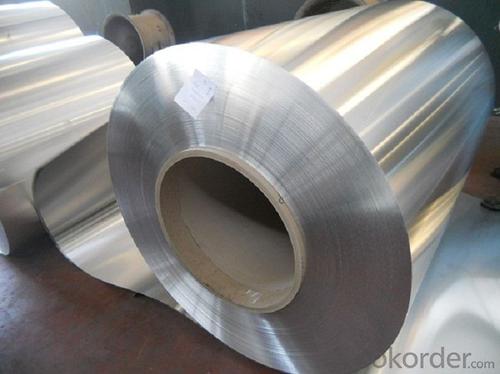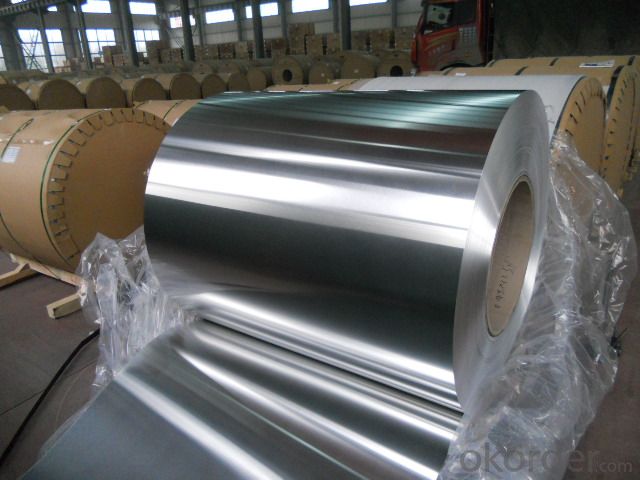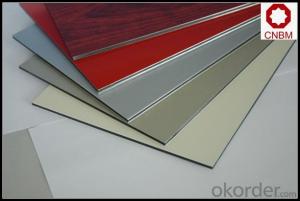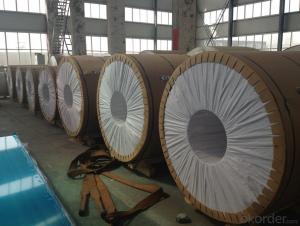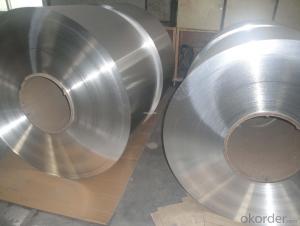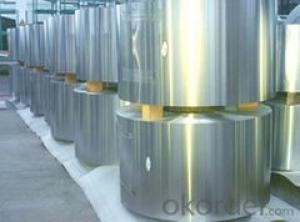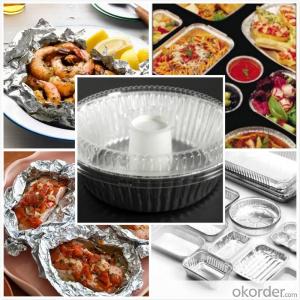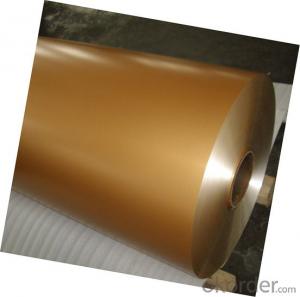China Aluminum Coil for Beverage Cans, Food Cans & Closures
- Loading Port:
- Shanghai
- Payment Terms:
- TT OR LC
- Min Order Qty:
- 2.5
- Supply Capability:
- 5000 m.t./month
OKorder Service Pledge
OKorder Financial Service
You Might Also Like
Specification
Aluminum Coil for Beverage Cans, Food Cans & Closures
l Product Introduction
Aluminium Coil is widely used in manufacturing aluminum thin sheet and aluminum foil. It is suitable for further machining with original standard quality. It is easy to be controlled and be manufactured to according to requirements.
l Product Specification
| Production Range (mm) | |||||
| Aluminum Sheets/Coils for Food Cans | Aluminum Sheets/Coils for Food Cans | ||||
| Thickness | Width | Thickness | Width | Length | |
| Body | 0.250 min. | 2300 max. | 0.18-0.25 | 500-1020 | 1045 max. |
| End | 0.222 min. | 2300 max. | 0.20-0.30 | 100-1020 | 1045 max. |
| Tab | 0.235 min. | 45 min. | 45 min | 29 min. | Coils only |
| Production Range (mm) | ||||
| Beverage Cans- Dimension | Food Cans-Coil Dimensions | |||
| Inside Diameter | Outside Diameter | Inside Diameter | Outside Diameter | |
| Body | 400 or 500 | 1850 max. | 400 or 500 | 1800 max. |
| End | 400 or 500 | 1850 max. | 300 or 400 or 500 | 1800 max. |
| Tab | 400 | 1850 max. | 300 or 500 | 1800 max. |
| Closures-Dimension Range | |
| Thickness | 0.20-0.3 |
| Width | 500-1020 |
| Length(Sheet) | 1045 max. |
| Inside Diameter | 300 or 400 or 500 on carton core |
| Outside Diameter | 1800 max |
| Finishes-Treatment | |||
| Beverage | Food | Closures | |
| Body: | Pre-lubricated: According to customer requirement. | Degreased, Chromium phosphate converted and DOS treated. | Pre-treated: Degreased, Chromium phosphate converted and if requested DOS treated. |
| End: | Pre-coated & Pre-maxed: According to customer requirements. | Pre-treated: Degreased, Chromium phosphate converted and DOS treated. Coated: Pre-waxed and lacquered on public or product side of the can, or both. | Coated: Lacquered on either or both sides. |
| Tab: | Coated: Clear or coloured expoxy, or bare: degreased and DOS re-oiled | Coated: Clear or coloured coated or bare: degreased and DOS re-oiled | |
l Packaging & Delivery
Packaging detail: Standard seaworthy exporting carton, Wooden pallets, waterproof paper and plastic coverage or as customer's requirements
Delivery detail: about 25 days from received oiginal L/C or advanced payment
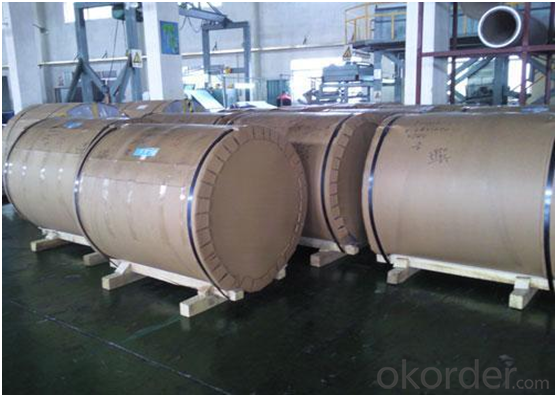
l Company Profile
CNBM International Corporation, China National Building Materials (Group) Corporation, is one of the largest companies in China building material & equipment industry, with 42,800 employees and sales in 2005 of US Dollar 4.395 billion. In 2006, China National Building Material Company Limited was listed on Hong Kong Stock Market with the stock code as 3323.
Aluminium coil is one of the popular product in the market of CNBM. With advanced technology and equipment, CNBM has sold its hight quality color coated aluminium coil to the world.
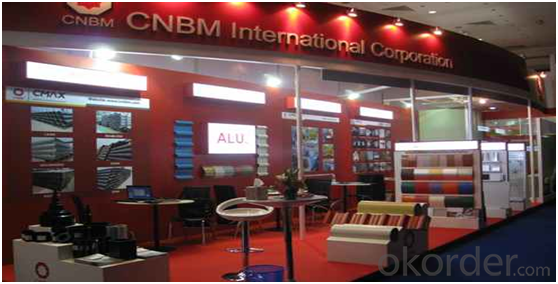
l CNBM World Wide
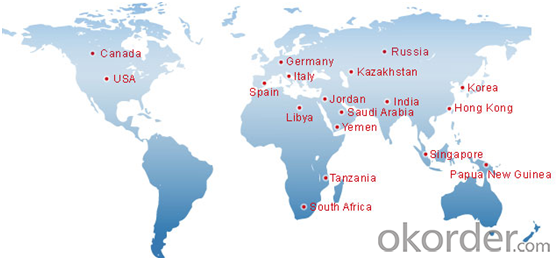
l Product Images
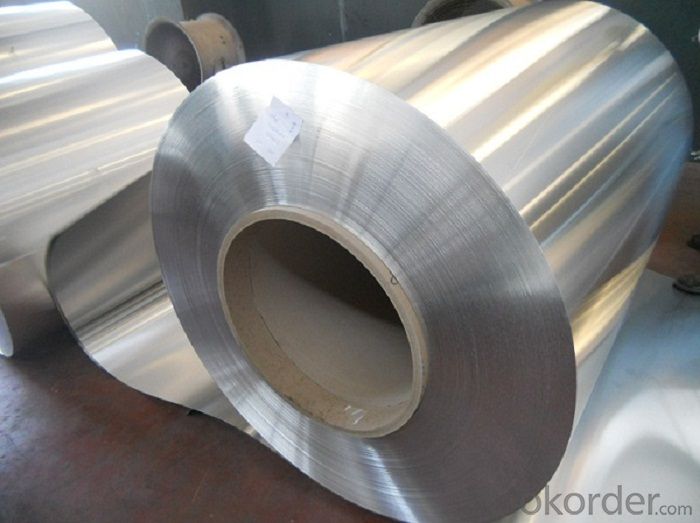
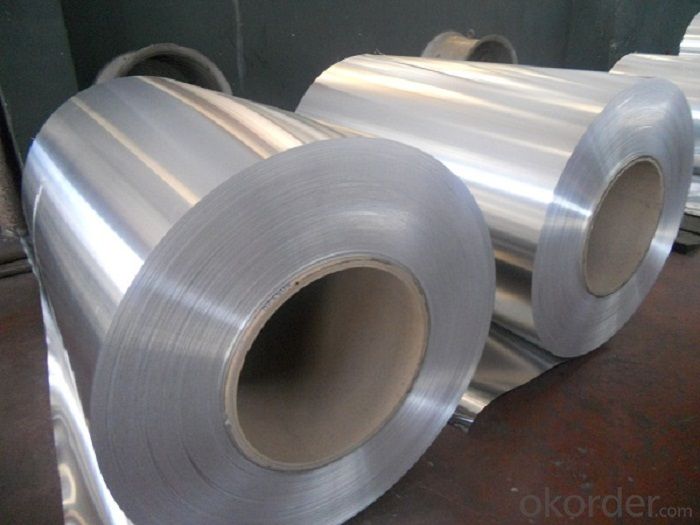
l Certificates
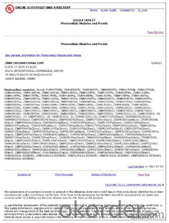
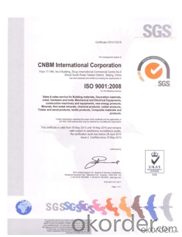
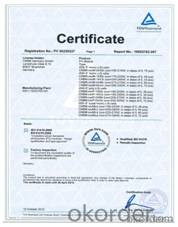
l FAQ
Q: Do you provide free samples?
A: Yes, free samples will be sent to you on freight at destination.
Q: Can I get your latest products catalogue?
A: Yes, it will be sent to you in no time.
Q: What is the MOQ?
A: 2.5 tons
Q: What are your payment terms?
A: We accept L/C, T/T.
- Q: What do the two items (COIL:873347 HEAT: number) on the label of the raw material of aluminum coil stand for?
- COIL means aluminum coil and HEAT means heating, so together they mean hot rolled coil.
- Q: Are aluminum coils suitable for solar panel frames?
- Yes, aluminum coils are suitable for solar panel frames. Aluminum is a lightweight and corrosion-resistant material, making it ideal for use in solar panel frames. It is also highly durable and can withstand various weather conditions, ensuring the longevity of the solar panel structure. Additionally, aluminum is easy to work with and offers excellent heat dissipation properties, which is crucial for solar panels as they generate heat during operation. The use of aluminum coils in solar panel frames helps to enhance the overall efficiency and performance of the solar panel system.
- Q: What are the acoustic properties of buildings using aluminum coils?
- The acoustic properties of buildings using aluminum coils can be influenced by various factors. Aluminum coils are commonly used in the construction industry for roofing, cladding, and insulation purposes. From an acoustic perspective, these properties can have both positive and negative impacts on the sound transmission within a building. One of the primary acoustic benefits of using aluminum coils is their ability to act as a reflective barrier for sound waves. When properly installed, aluminum coils can help prevent sound from penetrating through walls or ceilings, resulting in a reduction in external noise sources. This can be particularly beneficial in areas with high levels of noise pollution, such as urban environments or near busy roads. Additionally, aluminum coils can contribute to the overall sound insulation of a building. Due to their material properties, they can provide a certain level of soundproofing, especially when combined with other insulation materials. This can help maintain a comfortable and quiet indoor environment, allowing for improved concentration, productivity, and overall well-being of occupants. However, it is important to note that the acoustic properties of buildings using aluminum coils can also have limitations. Aluminum is a lightweight material compared to alternatives like concrete or brick, which means it may not provide as much mass to block sound transmission. Therefore, in situations where high sound insulation is required, additional measures such as double glazing, acoustic seals, or thicker wall constructions may be necessary. Furthermore, the use of aluminum coils can also affect the sound reverberation within a space. Due to their smooth and reflective surface, aluminum coils can potentially cause sound waves to bounce off, leading to increased echo and reverberation time. This can negatively impact speech intelligibility and acoustic comfort, especially in larger open-plan areas or rooms with high ceilings. Overall, while aluminum coils can offer certain acoustic advantages such as sound reflection and insulation, it is important to consider the specific requirements of each building project. Consulting with acoustic engineers or professionals can help ensure that the appropriate measures are taken to optimize the acoustic properties of buildings using aluminum coils, and to address any potential limitations.
- Q: Explain how aluminum coil interacts with magnetic fields and what effects can be observed.
- <p>Aluminum coil itself does not have a direct relationship with magnetic fields in terms of magnetic properties, as aluminum is not a magnetic material and does not get magnetized. However, when an aluminum coil is part of an electrical circuit, it can interact with magnetic fields in the context of electromagnetic induction. If a changing magnetic field passes through an aluminum coil, it can induce an electromotive force (EMF) or voltage in the coil, according to Faraday's law of electromagnetic induction. This induced voltage can cause an electric current to flow through the coil if it is part of a closed circuit. The aluminum coil's primary interaction with magnetic fields is thus through the generation of electrical current when used in conjunction with an electric circuit.</p>
- Q: What are the different types of surface coatings for aluminum coils?
- There are several types of surface coatings available for aluminum coils, including polyester, polyvinylidene fluoride (PVDF), epoxy, acrylic, and plastisol. Each coating offers unique properties such as durability, weather resistance, chemical resistance, and color retention. The choice of coating depends on the intended application and the specific requirements of the aluminum coil.
- Q: Can aluminum coils be used in food processing industries?
- Yes, aluminum coils can be used in food processing industries. Aluminum is non-toxic, lightweight, and has excellent conductivity, making it suitable for various applications in the food industry. It is commonly used in food packaging, cooking utensils, and equipment, including heat exchangers and refrigeration units. Additionally, aluminum coils are corrosion-resistant and easy to clean, making them a safe and hygienic choice for food processing.
- Q: wikipedia says welding aluminum by means of stick welding is possible but i have always been told TIG is the only way to weld aluminum. what do i need in order to stick weld aluminum? BTW i have a Lincoln Electric AC 225 Stick Welder
- Stick Welding Aluminum
- Q: What are the different surface textures available for aluminum coils?
- Aluminum coils offer a range of surface textures, each with its own distinctive qualities and uses. 1. Smooth: The smooth surface texture is a popular and versatile option for aluminum coils. It boasts a sleek and polished appearance, making it suitable for a wide array of applications, including architectural cladding, signage, and consumer electronics. 2. Stucco: Stucco texture involves embossing the aluminum coil to create a raised pattern reminiscent of small pebbles. This texture enhances the coil's durability, offering resistance against scratches and dents. It is often chosen for applications that require a robust and decorative finish, such as roofing, wall panels, and decorative trim. 3. Diamond: The diamond texture features an embossed diamond-shaped pattern on the aluminum coil's surface. This texture not only adds visual appeal but also provides enhanced traction and slip resistance, making it ideal for flooring, stairs, and ramps. 4. Brushed: The brushed texture is achieved by mechanically brushing the surface of the aluminum coil, resulting in a linear pattern. This finish gives the aluminum a distinctive satin-like appearance, making it sought after for architectural applications like interior wall cladding, furniture, and decorative elements. 5. Hammered: To create the hammered texture, the aluminum coil's surface is hammered, producing a unique and irregular pattern. This texture lends a rustic and handcrafted look, making it suitable for decorative accents, light fixtures, and furniture. 6. Perforated: The perforated texture involves puncturing small holes or perforations into the surface of the aluminum coil. This texture allows for increased airflow, light transmission, and sound absorption, making it commonly used in ventilation systems, acoustic panels, and decorative screens. These examples illustrate the various surface textures available for aluminum coils. The choice of texture depends on specific application requirements, including aesthetics, functionality, and durability.
- Q: What are the typical production volumes for aluminum coil manufacturers?
- The typical production volumes for aluminum coil manufacturers vary depending on the size and capabilities of the specific manufacturer. However, it is common for aluminum coil manufacturers to produce thousands to tens of thousands of tons of aluminum coils annually, catering to the demands of diverse industries such as construction, automotive, and packaging.
- Q: Are aluminum coils resistant to saltwater corrosion?
- Generally, aluminum coils exhibit resistance to corrosion caused by saltwater. Aluminum is widely recognized for its exceptional corrosion resistance, particularly in marine settings where exposure to saltwater is common. The naturally occurring oxide layer on the surface of aluminum acts as a shield, effectively preventing direct contact between the aluminum and the corrosive saltwater. This oxide layer serves as a protective barrier against saltwater corrosion. Moreover, various coating techniques, such as anodizing or painting, can be employed to further enhance the resistance of aluminum coils against saltwater corrosion. Nevertheless, it is worth noting that prolonged or continuous exposure to saltwater can gradually deteriorate the protective oxide layer and potentially result in corrosion, albeit at a slow pace. To prolong the lifespan and optimize the performance of aluminum coils in saltwater environments, regular maintenance and appropriate care are essential.
Send your message to us
China Aluminum Coil for Beverage Cans, Food Cans & Closures
- Loading Port:
- Shanghai
- Payment Terms:
- TT OR LC
- Min Order Qty:
- 2.5
- Supply Capability:
- 5000 m.t./month
OKorder Service Pledge
OKorder Financial Service
Similar products
Hot products
Hot Searches
Related keywords
